Are you considering entering into a business consulting agreement but unsure how to draft the perfect letter? You're not alone! Many professionals find it challenging to articulate their needs and expectations clearly. In this article, we will guide you through a simple yet effective letter template that you can customize to suit your unique consulting situationâread on to discover how to create a compelling business consulting agreement!

Scope of Services
The scope of services in a business consulting agreement outlines the specific tasks and deliverables expected from the consulting engagement. This can include strategic planning, financial analysis, operational optimization, and market research tailored for the client's industry, which may range from healthcare to technology sectors. Each service aims to address particular challenges, such as increasing efficiency, reducing costs by a certain percentage (e.g., 15%), or enhancing market penetration in identified regions, like North America. Additionally, the agreement should define the expected timeline for deliverables, milestones, and any key performance indicators (KPIs) that will be used to measure success, ensuring both parties have clear expectations and goals for the consulting relationship.
Payment Terms
In a business consulting agreement, payment terms detail the financial obligations of the parties involved. Typically, the payment structure may include a flat fee for services rendered, hourly rates charged for consulting hours, or retainer agreements requiring upfront payments at scheduled intervals. Payment methods may vary, including electronic transfers, checks, or credit card payments. Terms for late payments, such as a grace period of 15 days and any applicable late fees, should also be specified. Properly outlining the payment terms helps to ensure clarity and prevent disputes over fees between the consultant and the client, essential for establishing a professional relationship.
Confidentiality Agreement
A Confidentiality Agreement in a business consulting context establishes a legal commitment between parties to protect sensitive information exchanged during their professional relationship. This agreement details the definition of confidential information, which can include trade secrets, proprietary data, client lists, methodologies, and any other sensitive materials. Specific terms outline the obligations of both parties regarding the handling of this information, prohibiting disclosure to third parties without prior written consent. Key elements may include the duration of confidentiality, typically lasting several years post-agreement termination, and provisions for the return or destruction of confidential materials upon completion of services. It serves to foster trust and encourage open communication between consultants and clients, ensuring that strategic business insights remain secure within the bounds of the agreement, thereby facilitating a productive collaboration.
Termination Clause
A termination clause in a business consulting agreement provides the parameters under which either party (client or consultant) can terminate the agreement. This clause typically outlines notice requirements, reasons for termination, and any obligations upon termination. For instance, a client may terminate the agreement with 30 days' written notice for any reason or for cause if the consultant fails to meet performance metrics defined in the agreement. Similarly, the consultant may terminate the agreement if the client breaches payment terms or consistently fails to provide necessary information. Additionally, any confidentiality obligations might survive termination, ensuring that sensitive information remains protected even after the agreement ends. Specific details regarding any fees owed or projects in progress at termination should also be addressed to ensure clarity for both parties involved.
Dispute Resolution
Dispute resolution mechanisms are vital in ensuring efficient and fair resolution during business consulting agreements. Mediation, a collaborative approach where an impartial third party assists parties in negotiating a settlement, offers a constructive environment for resolving conflicts. Arbitration provides a more formal process, where an arbitrator reviews the case details and issues a binding decision. Jurisdictions, such as California or New York, may require specific provisions under their laws regarding confidentiality and enforceability. Specified timelines for initiating dispute resolution, typically within 30 days of an unresolved issue, can instill structure and urgency. It is also essential to determine the governing law that applies to the agreement, influencing the interpretation and enforcement of disputes.
Letter Template For Business Consulting Agreement Samples
Letter template of Professional Services Agreement for Business Consulting
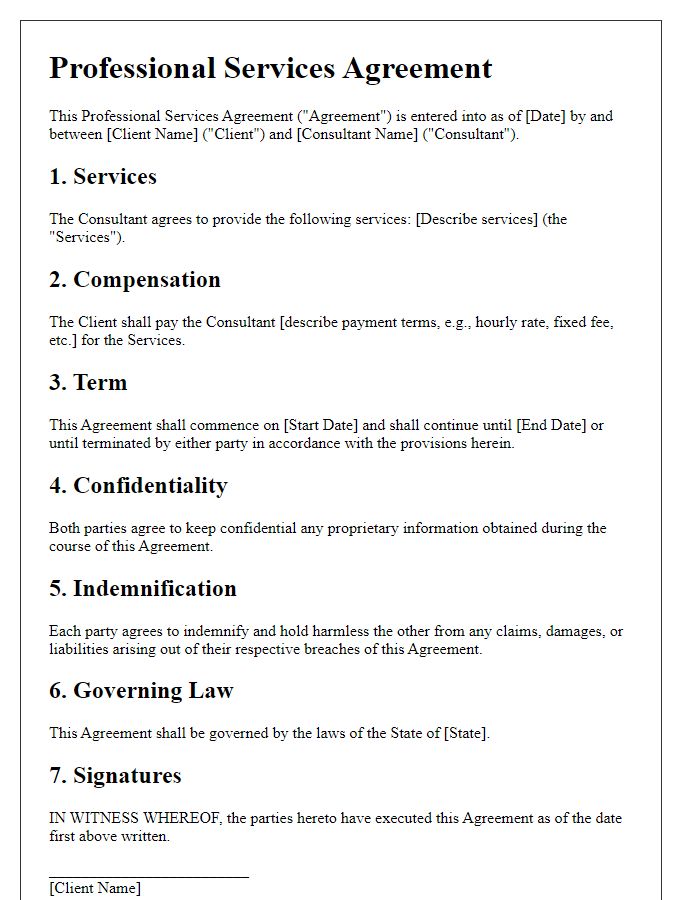

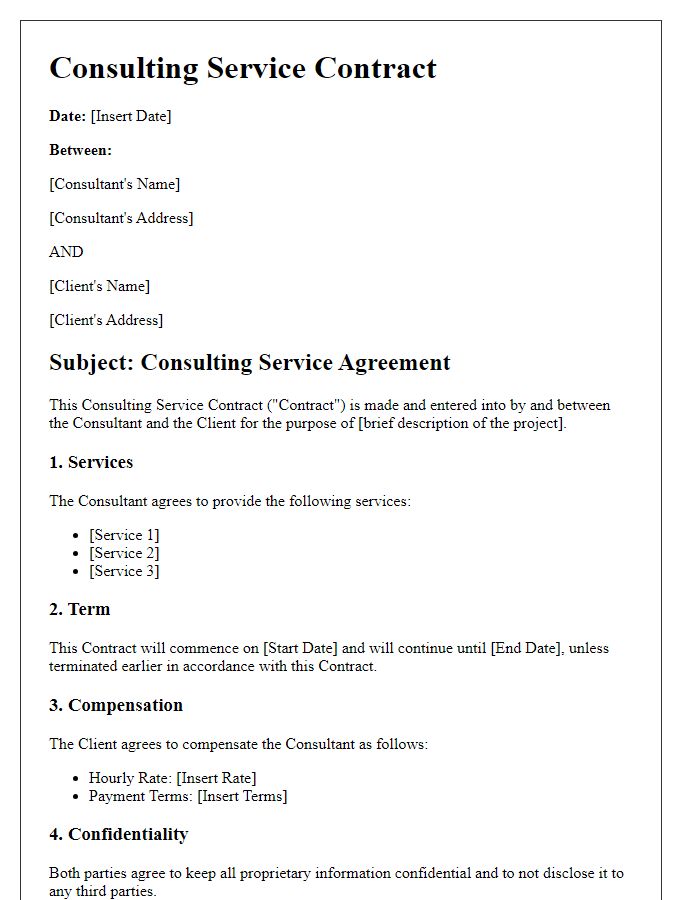
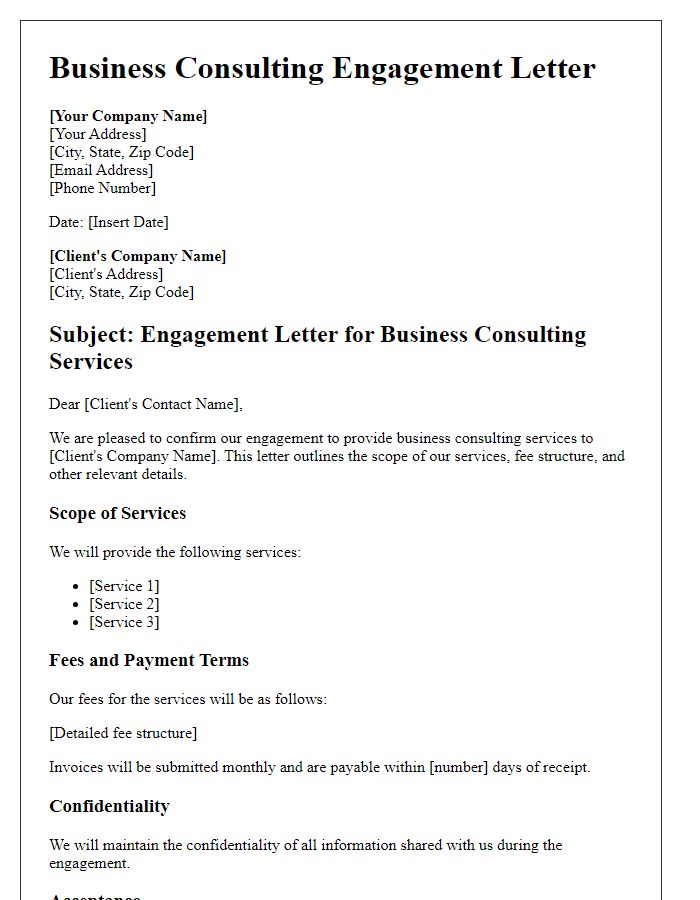
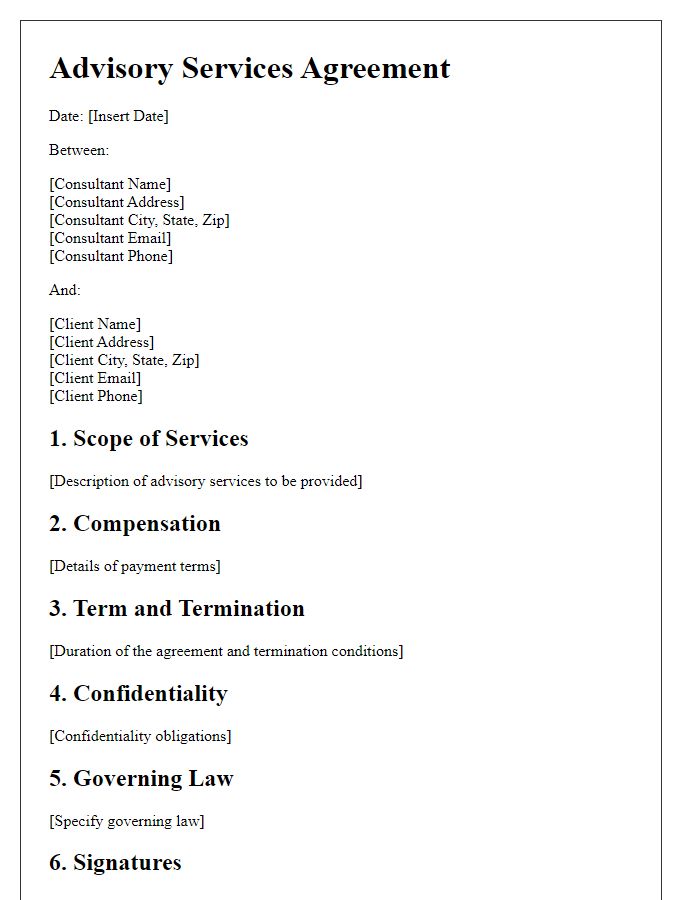
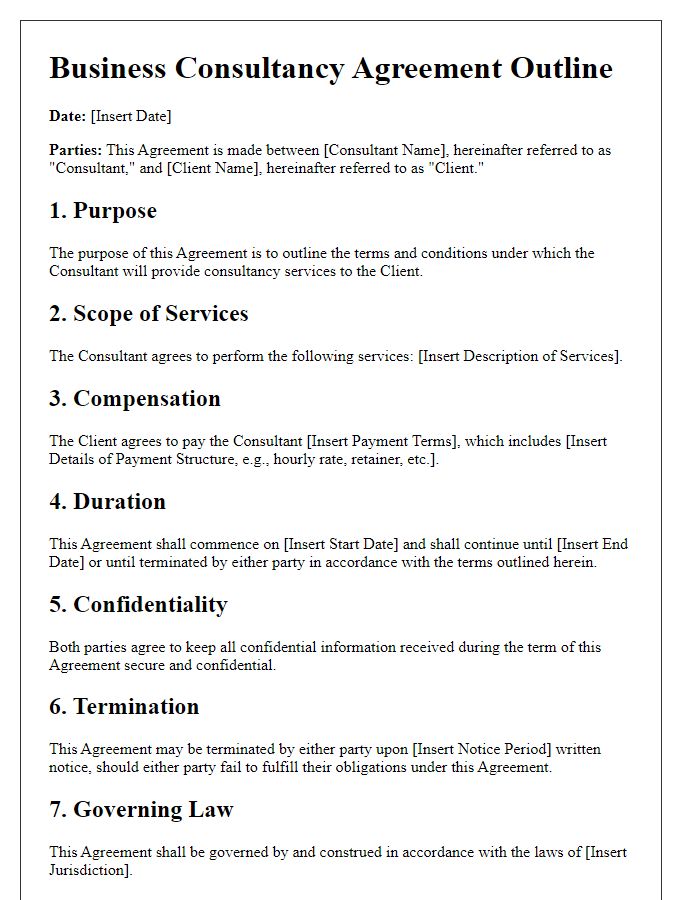
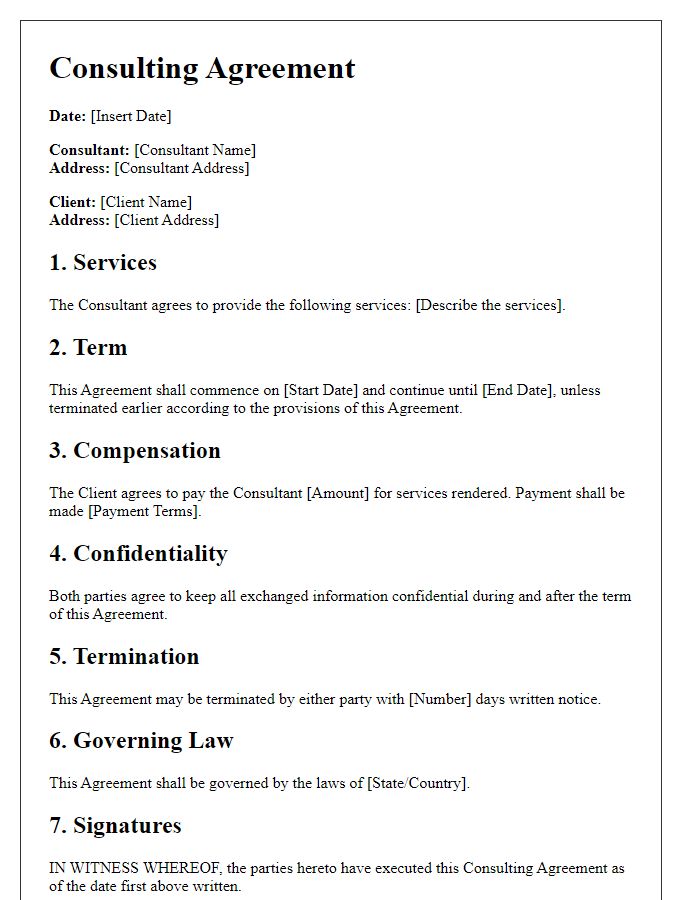
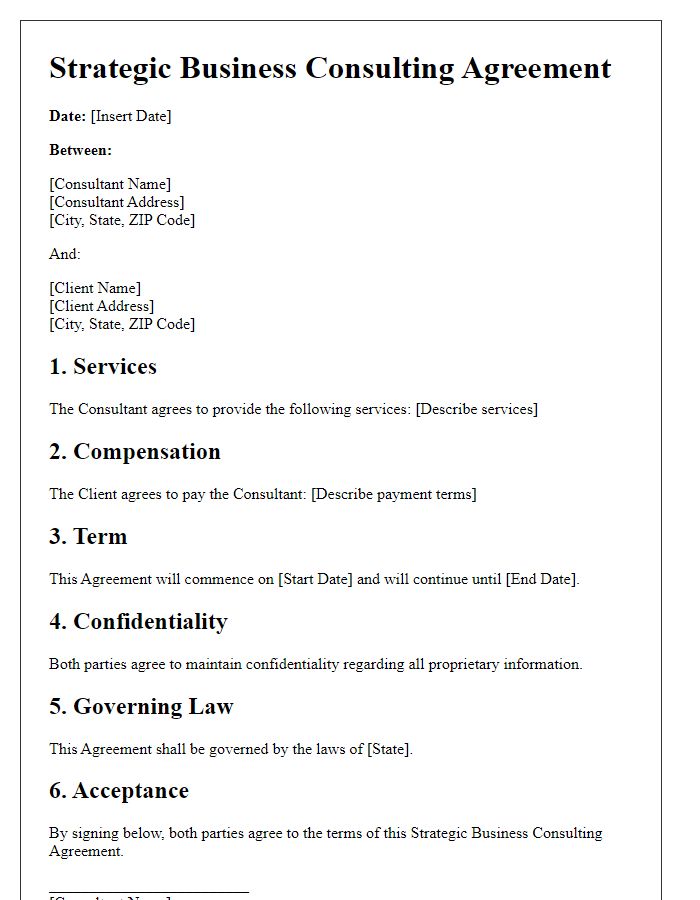
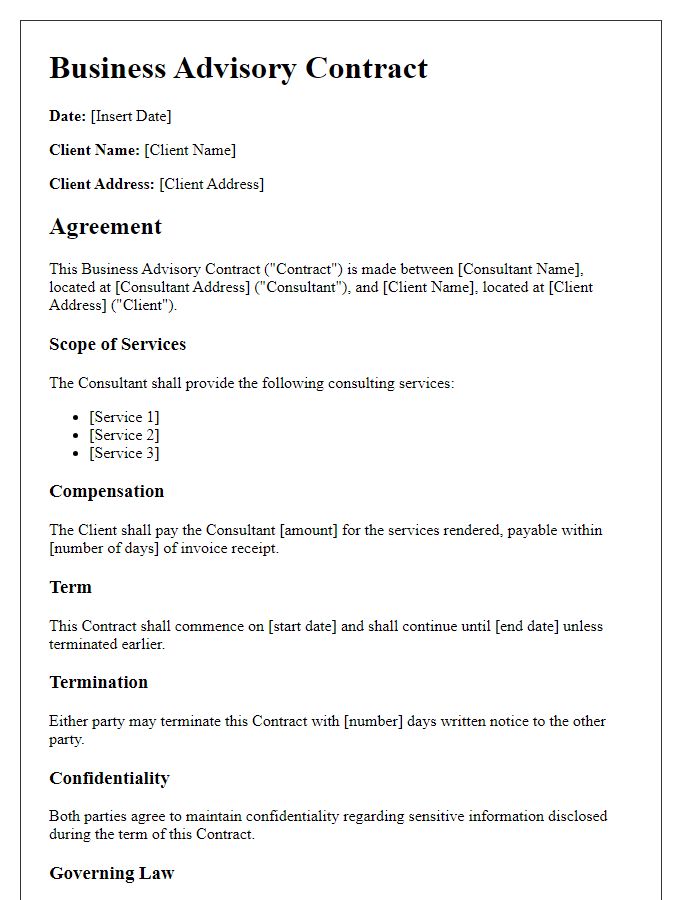
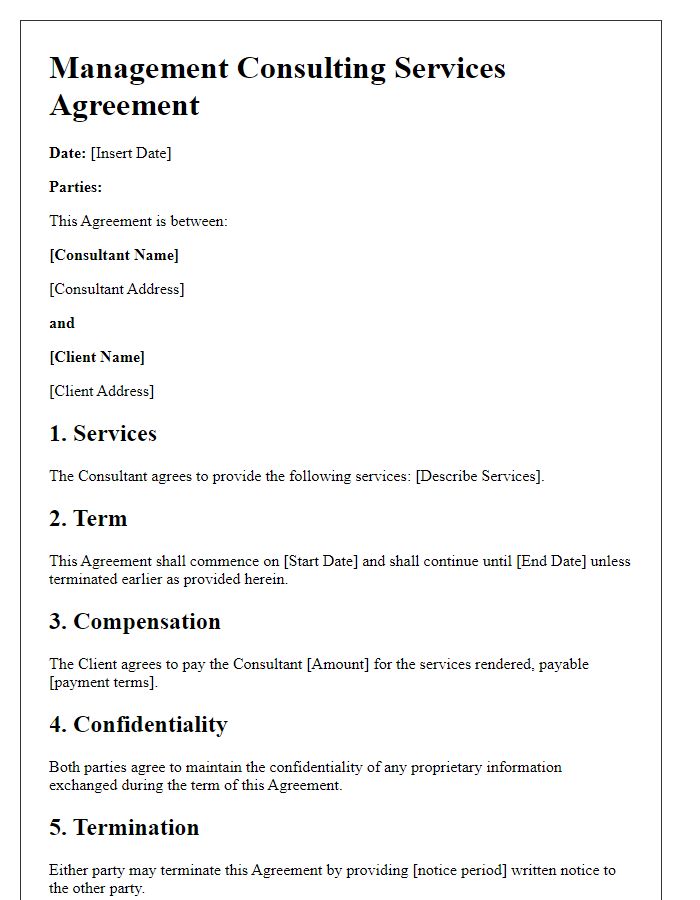
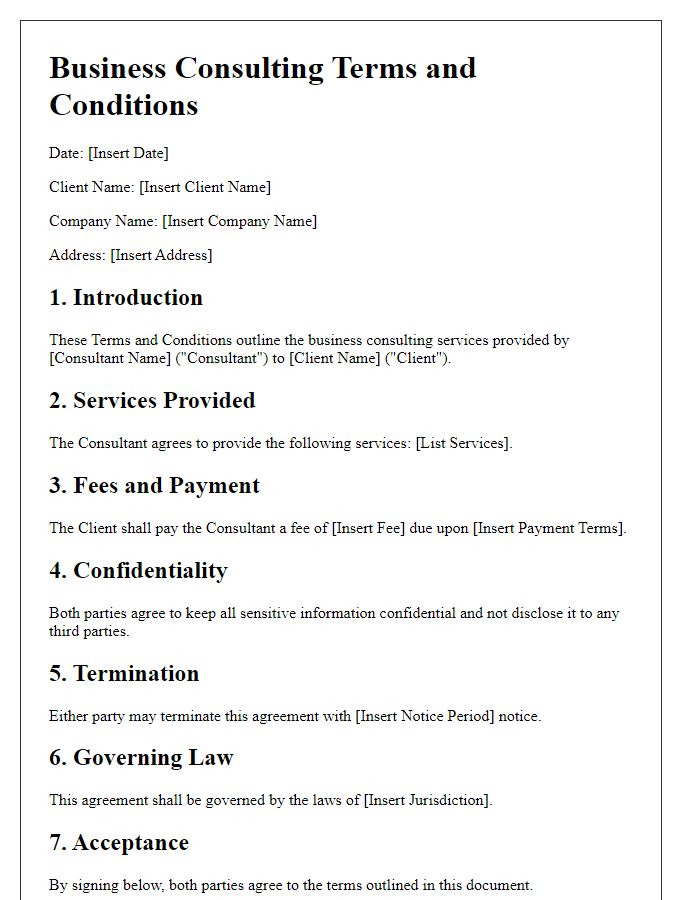

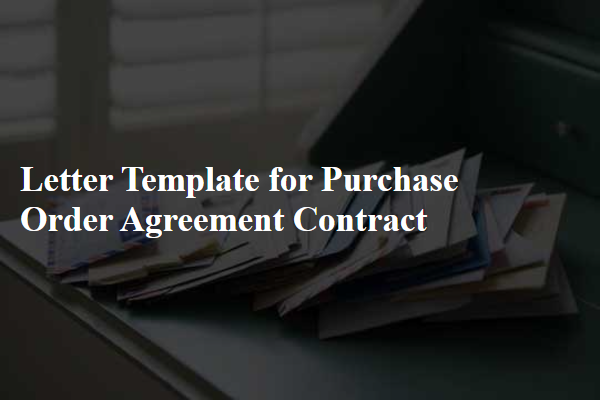
Comments